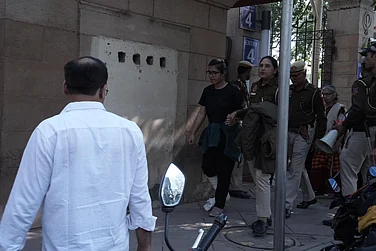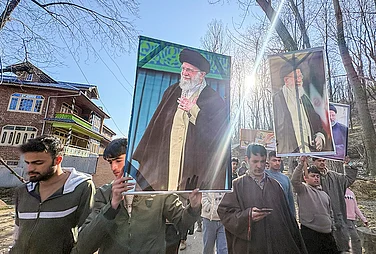The Indian debate on Article 370 has been deeply flawed from the start, because it rests on a misperception. Article 370 is not a standalone provision of the Constitution. In fact, it merely codifies the Instrument of Accession under which the state of Jammu and Kashmir joined the Union of India. The instrument stipulated that the writ of the Indian government would be limited to defence, external affairs and communications (currency was added later).
In other words, if Article 370 is abrogated, then it will have to be replaced by a similar article. Otherwise, abrogation would require renegotiating the terms of accession, which may open up the issue of accession itself, and would certainly permit the introduction of new terms. Are the people of the state and India willing to reopen the accession issue and terms? Have their representatives considered what could be put in place instead, not to mention, ever discussed it?
In my view, any suggestion of repealing Article 370 opens a can of worms. However, this does not mean Article 370 cannot be amended. The Instrument of Accession allows amendments to its terms, provided they are agreed by the heirs/successors to the then maharaja, who would today comprise the elected government of the state. The same amendments would also have to be ratified by amendments or additions to the Constitution of Jammu & Kashmir, which would require not only the state government but also the state legislature to agree. It will be a long and complicated process.
Having said this, there are legitimate demands for change. First of all, there is a long-held grievance in the Valley that Article 370, as adopted finally, itself was an erosion of the 1952 Delhi Agreement and the essence of autonomy, and that many parts of Article 370 were later eroded to hollow out what was left of the state’s autonomy; distinguished constitutional experts concur, as do the state’s regional political parties. This sentiment has been further fed by human rights violations and the misuse of the Armed Forces Special Powers Act, both of which are seen as stemming from the powers of the central government.
At the same time, successive Jammu and Kashmir governments have used Article 370 to protect themselves from accountability. The state constitution is a piece of paper; the state legislature has passed few Acts of significance in the past two decades. Power is concentrated in the hands of a few.
Most of the demands for change, however, pertain to the state constitution and not to Article 370. Regional and/or district-level devolution, for example, is a demand that has been voiced for over 50 years; there are several state government-commissioned reports on it, but no action has been taken. Along with the issue of Article 370, devolution was also discussed in the prime minister’s working group on Centre-state relations and in our Interlocutors’ Report. Yet, the latter is still to be discussed by the state government or be tabled in Parliament, and the state government is yet to take a decision on the former. Even the panchayati raj institutions have not been empowered, at the cost of several panchs’ lives.
There is one demand—for Union Territory status for Ladakh and perhaps some districts of Jammu—that would indeed require a change in both Article 370 and the terms of accession. But any attempt to push it through would be seen in the Valley, some districts of Jammu and very likely in Kargil, as a deliberate attempt to divide the state. An already simmering set of communal tensions will be inflamed.
Ironically, the debate on abrogation of Article 370 comes at a time when Pakistan had inched closer to the Indian model. In 2009, the previous Pakistan government agreed to a package of reforms for Gilgit-Baltistan that gave the region some, though not all, of the powers that Jammu and Kashmir currently has under Article 370. In his speech at Kashmir University, Satinder Lambah, envoy of the former prime minister, described the framework for self-rule that had taken shape in his backchannel with Pakistani envoys; it was based on Article 370. During our interlocutors’ mission, civil society groups in Pakistani-held Jammu and Kashmir demanded similar rights to those offered under Article 370 to be given to Gilgit-Baltistan.
Why put all this at jeopardy for a demand that brings more complications than it takes away? Article 370 is a structure that has worked despite erosions and flaws. That it should adapt to changing times is a given, and one that might strike a chord in the people of the state.
(The writer is director of the Delhi Policy Group)


























